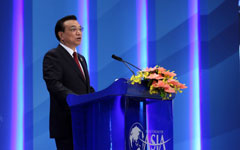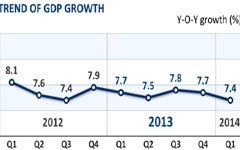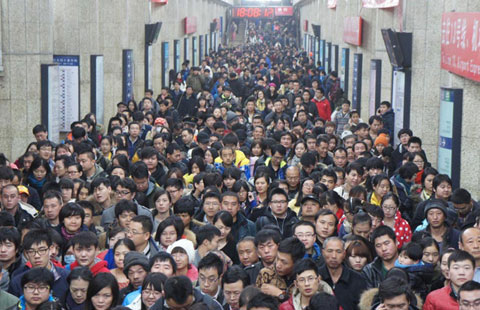Looking at the bigger picture
By Zhou Junsheng (China Daily) Updated: 2014-04-17 07:13Conscious of the negative effects of short-term stimulus policies, the government has so far refrained from introducing any new stimulus, and instead focused more on the reform of government functions, such as simplifying administrative procedures and delegating some power to local governments, to release more market vitality. The government is also striving to build a long-term mechanism for national economic development. In the short term such changes will inevitably bring China some woes as a result of slower economic growth.
 |
 |
Despite refraining from short-term policy stimulation while economic growth remains above the government's bottom line, the government is still braced for some appropriate stimulus measures if the economy looks like crossing that line in order to prevent any social crises. As Li has said, "established measures and all policy reserves at our disposal are sufficient for us to deal with any possible risks and challenges."
For a country that is still struggling to subdue the negative effects produced by the last round of stimulus package, China should be well aware that any new round of stimulus measures should focus more on long-term effects, other than pursue a short-term economic rebound at the price of damaging the long-term market mechanism.
The author is a Shanghai-based economics commentator.
- Models at New York auto show
- China's economy will not see hard landing
- Economic growth in Q1 drops to 7.4%
- Air China's in-flight Web access put to test
- How urbanization can help the poor
- Disney-Shanghai partnership portends a creative boost
- Chinese economy resilient enough to refute worries
- China's FDI inflow down 1.47% in March

















